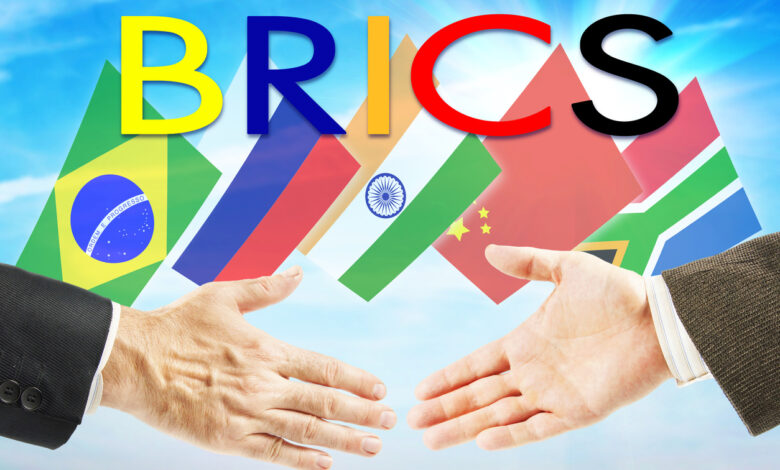Bolsonaro and the Failure of the International Authoritarian Enterprise

On Wednesday, Russia’s President Vladimir Putin took a break from threatening a war with Ukraine to meet with Brazil’s President Jair Bolsonaro. Their countries were clumped together in the early 2000s by a Goldman Sachs report focused on the speed at which the developing economies of Brazil, Russia, India, and China (the BRICs) were growing. Of course, despite the rosy projections, the Brazilian and Russian economies did not have explosive growth over the last twenty years and the loose organization of the BRICS failed to coalesce around much of anything. Now, Bolsonaro is trying to shore up the relationship. However, his failures show that despite American fears, authoritarian alliances will never rival liberal ones.
As with most authoritarians or want-to-be authoritarians, self-preservation is the main focus and Bolsonaro is in the midst of a difficult re-election campaign. The election is slated for October and current polling suggests that former Brazilian president Luiz Inacio Lula da Silva is leading Bolsonaro by 17 percentage points. One core issue for the election is Brazil’s isolation. Lula went on a European tour last November and met with German Chancellor Scholz and French President Emmanuel Macron. To combat the perception that he has led Brazil into global ostracization, Bolsano has met with Putin and will follow that up by visiting Poland and Hungary before returning home. However, even members of Brazil’s conservative movement have called this trip “utterly reckless” and have said that “[o]ur president hasn’t the slightest clue what’s going on in the world.” While authoritarians are only able to rub elbows with each other, we continue to see liberal leaders around the world securing relationships across the globe.
Despite Brazilians and Americans asking Bolsonaro to not go, he claimed that Brazilian sovereignty was a reason to push forward. However, this trip does nothing but highlight how authoritarians get sidelined. Instead of coordinating with other countries to either support or oppose Russia’s actions in Ukraine, Bolsonaro is only discussing trade and defense cooperation. This is not the first time this has happened. During his trip to China, he was not given an audience with President Xi’s senior economic advisors. Putin also exemplifies this issue, his actions consistently get Russia pushed out of international forums like the G8 (now the G7) and few on the international stage see Russia as a long-term cooperative partner. He has regulated Russia to be a spoiler rather than a great power.
Outside of the terrible optics of visiting Putin during a time of heightened tensions, many Brazilians were worried that Bolsonaro would say something intemperate. Which, of course, he did. Following the meeting, he said that Brazil stands in “solidarity” with Russia. The problem with this statement is that it is just inscrutable enough to neither show support for Russia’s potential invasion of Ukraine nor distance himself from it. So it ends up with the worst of both worlds, angering America and Europeans but not strengthening ties with Russia. Bolsonaro is not the only aspiring authoritarian who has a problem with staying on message. Rodregio Duterte from the Philippines has done everything from insulting the Pope in a very Catholic country to praising Hitler and former President Trump’s wild statements speak for themselves. While authoritarians may be charismatic enough at home to maintain a grip on power, their idiosyncrasies often fail to win friends abroad and prevent a coherent ideology from spreading beyond their borders.
The worst part of Bolsonaro’s trip is that it is unlikely to result in anything more than a series of bad photo-ops. Brazil has real problems. They are struggling with major inflationary pressures. Russia is a major supplier of fertilizer for Brazil’s agricultural sector and Bolosarno claims to have gotten an agreement from Russia to double its exports. However, as Americans have recently learned with the handshake agreement between Xi and Trump, authoritarians often do not hold up to their end of these deals because they do not respect the rule of law. China has also flexed their muscles with Brazil, lowering investments and at one point banning Brazilian beef. While authoritarian regimes can move decisively in ways democracies cannot, their lack of support for the rule of law and process makes their agreements much more flimsy.
America should remain vigilant against ideology contagion and authoritarian coordination. In the last eighteen months, there have been six coups in five countries in Africa which all border each other and Russia and China continue to work to strengthen their relationship. However, as Bolsanaro’s example makes clear, the possibility of an authoritarian international order built to rival America’s alliance system remains small.

